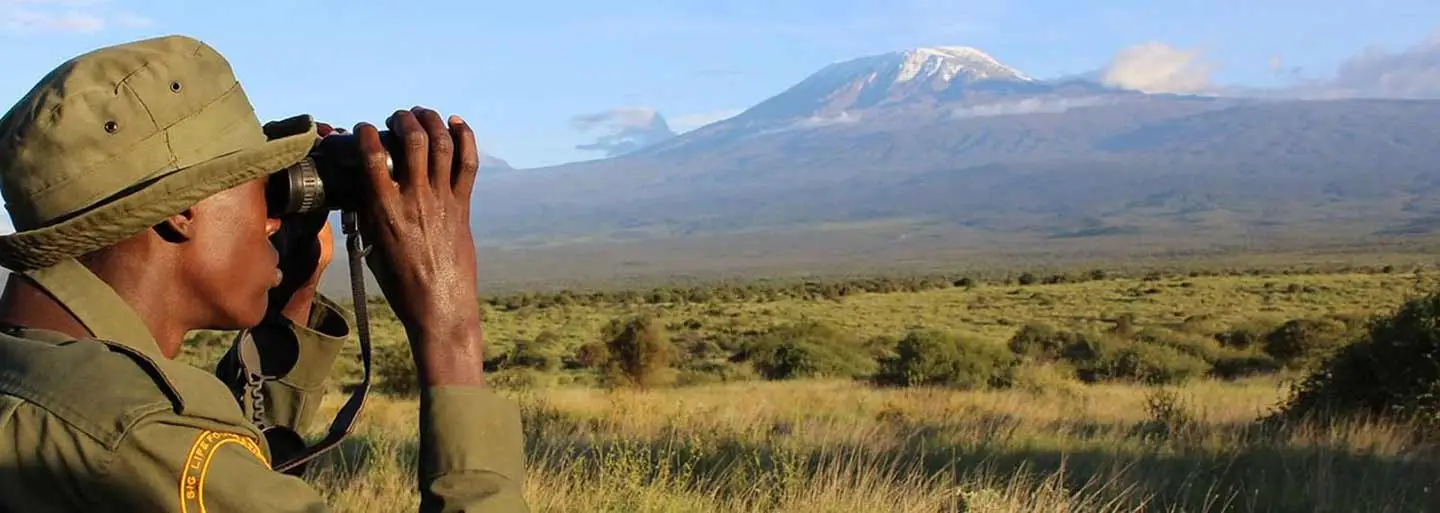Resources

Collaborators with skin in the game: Learning about the use of sport to foster resilience against wildlife crime in the Greater Kruger, South Africa
This 2024 USAID Collaborating, Learning, and Adapting (CLA) Case Competition winner is about the USAID Khetha Program, “Protecting Wildlife, Benefiting Communities.

The Community-Based Landscape Connectivity Model: A Collaborative Approach to Secure, Protect and Sustain Kwakuchinja Wildlife Connectivity
This 2024 USAID Collaborating, Learning, and Adapting (CLA) Case Competition winner is about the USAID Tuhifadhi Maliasili (Preserve Natural Resources) project.

Report to Congress on Programs in Forestry and the Conservation of Biodiversity During Fiscal Year 2023: Results and Funding
To satisfy the requirements of Sections 118(f) and 119(h) of Part I of Public Law 87-195, the Foreign Assistance Act of 1961, as amended, the U.

From Silos to Solutions: The Value Added by Using a One Health Approach
“One Health is an integrated, unifying approach that aims to sustainably balance and optimize the health of people, animals, and ecosystems.

Putting USAID's One Health Position Statement into Practice
One Health is a pragmatic approach that encourages cross-sectoral collaboration to design effective solutions to complex global challenges where the health of natural systems, humans, and animals are interdependent.

Getting Past the Gatekeeper: Principles and Practices for Better Program Communications
This guide shares principles and practices from psychology, business, and human-centered design to help you connect with your audience.

USAID Cambodia Green Future Activity: Social and Behavior Change Communication (SBCC) Strategy
The Cambodia Green Future Activity developed a Social and Behavior Change Communication (SBCC) Strategy to increase target populations’ knowledge and positive attitudes about the benefits of Cambodia’s unique and endangered biodiversity and the critical importance of Cambodia’s forest ecosystems.

Evaluation Design Report for the USAID/West Africa RESTORE Activity
The objective of this report is to provide details on the impact and performance evaluation design for the Health, Ecosystems, and Agriculture for Resilient Thriving Societies (HEARTH) RESTORE activity in in Ghana and CDI.

HEARTH Private Sector Engagement: A Summary of the Keys to Success When Working with Private Sector Partners on Multisectoral Programming
This research summary presents findings from the first round of Private Sector Engagement (PSE) interviews to learn how to effectively build private-public partnerships in the context of multi-sectoral conservation programming, drawn from the HEARTH experience.

HEARTH Private Sector Engagement: The Case for Working with the Private Sector on Multisectoral Conservation Programs
The private sector provides a wide range of additional value to multisectoral conservation programming, including increased engagement of communities in sustainable livelihood activities, enhanced market and technical expertise, additional funding, and increased long-term sustainability and scalability of activities.

Turning Vicious Cycles into Virtuous Ones: Pathways for USAID Action on Illegal, Unreported, and Unregulated Fishing in Latin America and the Caribbean
Globally, illegal, unreported, and unregulated fishing (IUUF)—or a combination of these practices—accounts for one in five fish caught in the wild.

Conserving Coastal Ecosystems Project
The USAID/Honduras Conserving Coastal Ecosystems Activity will improve coastal resource management to protect biodiversity, promote climate change adaptation and mitigation, and generate economic opportunity and resilience for local communities.

Memoria de Implementación Jóvenes para la Conservación Honduras
El Programa Jóvenes para la Conservación Honduras (JPC Honduras) es una experiencia piloto en América Latina.

Honduras Youth for Conservation Corps Fact Sheet
The Honduras Youth for Conservation Corps (YCC) program, implemented by USFS and funded by USAID, aims to create a new generation of socially and environmentally conscious young leaders.

Mecanismo De Reclamação E Recurso Para as Actividades das Áreas Protegidas da USAID: Directrizes E Princípios Para a Concepção E Integração
Este documento disponibiliza princípios a ter em conta na elaboração de um Mecanismo de Reclamação e Reparação ao nível da actividade ou do projecto de um parceiro de implementação da USAID em parques nacionais e outras áreas protegidas.

Guia de Formação e Monitoração de Boas Práticas
Este Guia de Formação e Monitoração de Boas Práticas tem como objectivo apoiar os parceiros no acompanhamento e na aplicação da lei e na protecção dos direitos humanos em parques nacionais e outras áreas protegidas.

Quadro Opcional De Avaliação De Impacto Social
Esta Estrutura de Avaliação de Impacto Social baseia-se nesses documentos existentes para ajudar as unidades operacionais e os parceiros de implementação a equilibrar os possíveis impactos negativos da programação de desenvolvimento com os benefícios de se ajudar as comunidades a serem mais resilientes.

Guia Conciso do Kit de Ferramentas da USAID Para Monitorar o Envolvimento e Verificar o Consentimento Livre Prévio e Informado
Esta é uma ferramenta multifacetada desenvolvida para a USAID no sentido de facilitar aos parceiros de implementação, Povos Indígenas e outras partes interessadas a implementação dos processos do FPIC.

Orientação da USAID sobre Monitoração de Consentimento Livre, Prévio e Informado (FPIC)
Este guia da Ferramenta-360° do Consentimento Livre, Prévio e Informado (FPIC) serve como recurso para se compreender quando o FPIC é exigido pela Agência Americana para o Desenvolvimento Internacional (USAID) e como deve ser incorporado no ciclo do programa.

Kit de Ferramentas Opcional Para Identificação de Povos Indígenas
Este kit de ferramentas apresenta algumas abordagens relevantes para a identificação de Povos Indígenas por oficiais e parceiros da USAID e destina-se a ser utilizado, conforme o caso, para necessidades estratégicas ou programáticas.



